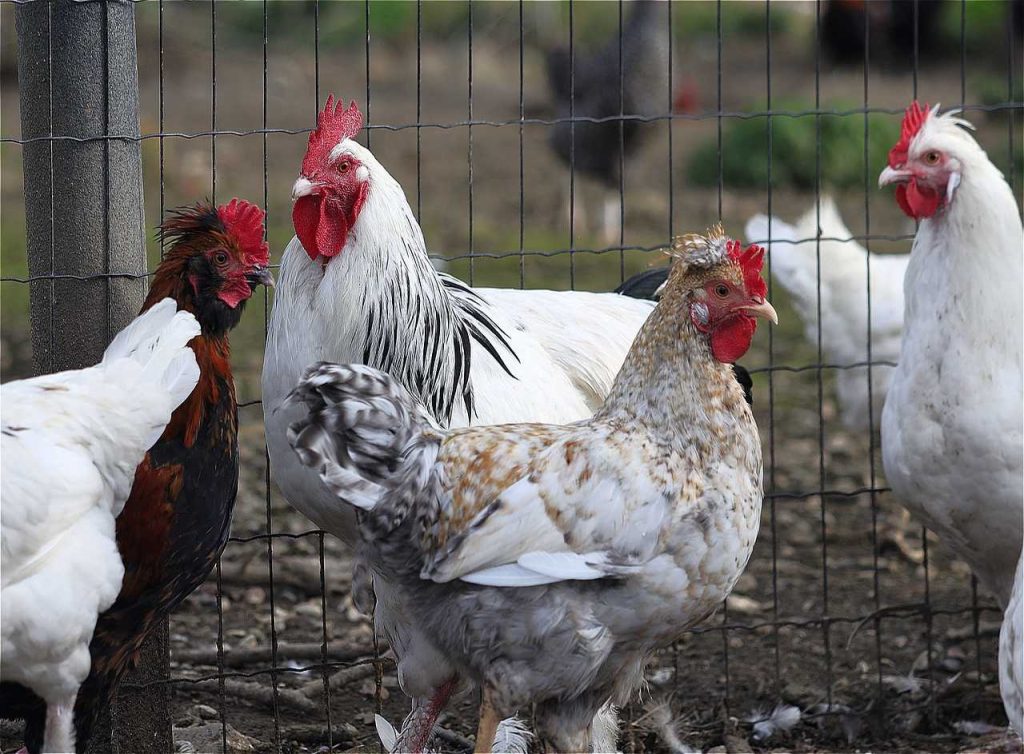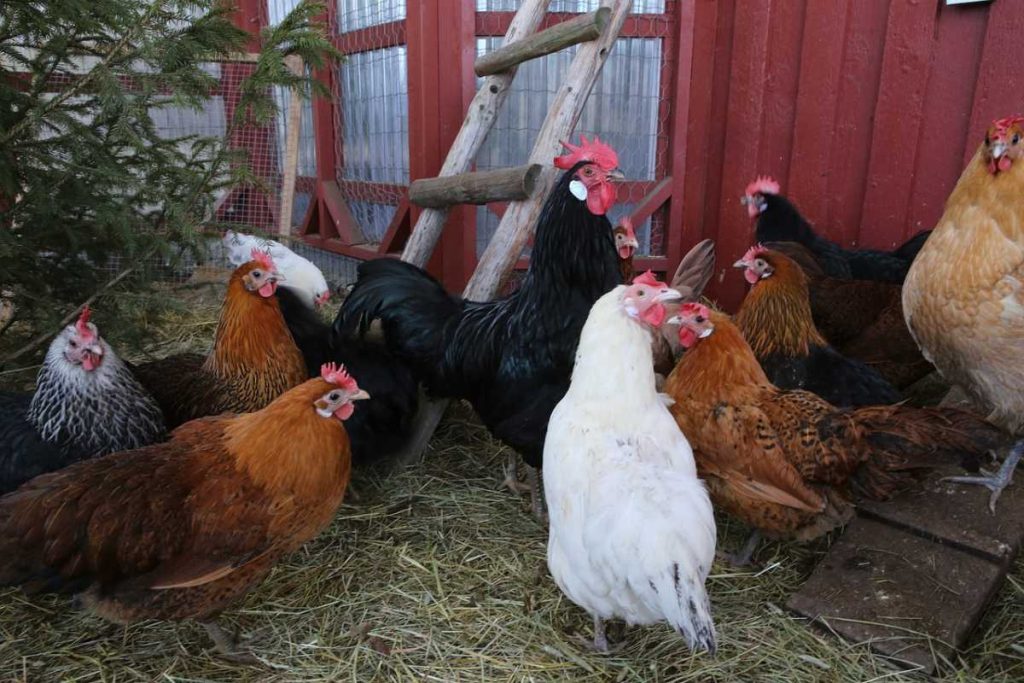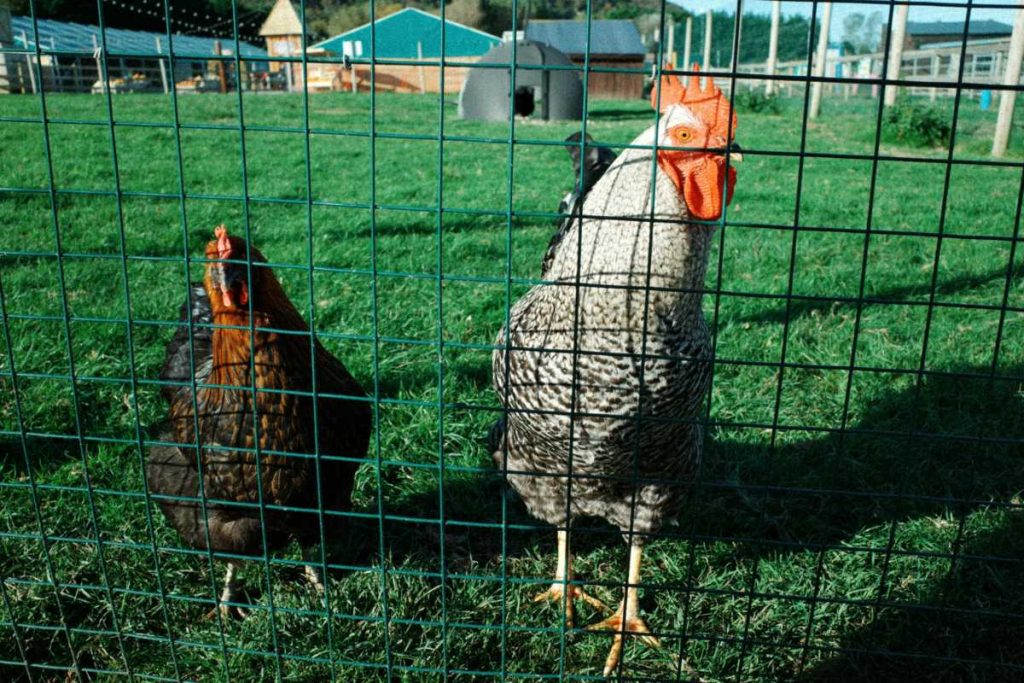Raising chickens in limited spaces can be a rewarding experience, providing you with fresh eggs and the joy of keeping these delightful creatures. However, managing a flock in a confined area requires careful planning and creativity. Here are ten detailed tips to help you maximize your space while ensuring your chickens are healthy and happy.

1. Choose the Right Breeds
Selecting the right chicken breeds is crucial when managing a small flock. Consider these factors:
- Small Breeds: Choose compact breeds like Bantams, Silkies, or Serama chickens, which are smaller and easier to manage. Bantams, for instance, are about one-quarter the size of standard chickens, making them ideal for small spaces.
- Docile Temperament: Friendly and calm breeds, such as Orpingtons, Rhode Island Reds, and Sussex, are less likely to create conflicts and can adapt well to confined environments. This can enhance the overall atmosphere of your flock, making for a more peaceful experience.
- Dual-Purpose Breeds: If you’re looking for both eggs and meat, consider dual-purpose breeds like Plymouth Rocks or Wyandottes. They provide a good balance between egg production and meat, making them efficient choices for limited spaces.
2. Use Vertical Space
Maximizing vertical space is essential for creating an engaging environment for your chickens:
- Multi-Level Housing: Consider building or purchasing a multi-tiered chicken coop. These structures can have multiple levels for perching and nesting, allowing chickens to explore their surroundings and express natural behaviors.
- Perches and Shelves: Install perches at various heights within the coop. Chickens love to roost, and providing elevated spaces can reduce stress and allow them to establish a pecking order. Ensure the perches are sturdy and easy to clean.
- Ramps and Ladders: Incorporate ramps or ladders to encourage climbing and movement. Chickens enjoy navigating their environment, and adding these features can enhance their physical health.
By utilizing vertical space, you provide more opportunities for exploration and activity, which is crucial in smaller areas.
3. Create a Portable Coop
A portable or mobile chicken coop, often referred to as a “chicken tractor,” offers flexibility and freshness for your flock:
- Benefits of Mobility: Moving the coop regularly allows chickens to access fresh grass and forage, preventing overgrazing and encouraging natural behaviors. Fresh ground is essential for their diet and health.
- Design Considerations: Ensure the coop is lightweight yet sturdy enough to protect against predators. Features like wheels or handles can make it easier to move.
- Access to the Outdoors: Portable coops allow you to place them in sunny spots during the day and move them to shaded areas in the heat, ensuring your chickens are comfortable.
A portable coop not only maximizes space but also improves the overall health and happiness of your chickens.
4. Optimize Your Run
Designing a chicken run that maximizes space and provides enrichment is vital for your flock’s well-being:
- Enclosed Area: Construct a secure, enclosed run using chicken wire or hardware cloth to keep predators at bay. Ensure the fencing is buried at the bottom to prevent digging.
- Shade and Shelter: Include shaded areas with tarps or small trees to protect chickens from extreme weather. Providing windbreaks can also help keep them comfortable.
- Interactive Elements: Add perches, hanging toys, and structures like tunnels to create an engaging environment. This encourages exercise and prevents boredom.
- Rotating Access: If possible, consider rotating sections of the run, allowing different areas to rest and regrow while giving your chickens access to fresh foraging spots.
A well-designed run enhances your chickens’ quality of life and allows them to express natural behaviors.

5. Limit the Flock Size
When raising chickens in limited spaces, it’s crucial to consider the appropriate flock size:
- Space Requirements: Aim for a minimum of 4 square feet per chicken inside the coop and at least 10 square feet per chicken in the run. These measurements help prevent overcrowding and ensure each bird has enough personal space.
- Balance Production and Comfort: While it may be tempting to have more chickens for increased egg production, a smaller, well-cared-for flock will be happier and healthier, leading to better egg quality and overall flock dynamics.
- Regular Assessments: Monitor the dynamics of your flock. If you notice signs of stress, aggression, or competition for resources, consider reducing the flock size to improve their living conditions.
Finding the right balance will enhance your chickens’ well-being and your overall chicken-keeping experience.
6. Incorporate Natural Foraging
Encouraging natural foraging behaviors is essential, even in limited spaces:
- Plant Forage-Friendly Plants: Grow chicken-friendly plants like clover, dandelions, or herbs within the run. These plants not only provide nutrition but also create a more stimulating environment.
- Use Foraging Toys: Introduce foraging toys or hanging treats that chickens can peck at, which can stimulate their natural instincts and keep them entertained.
- Seasonal Foraging Opportunities: Take advantage of seasonal changes by providing treats like pumpkins in the fall or leafy greens in the summer. Rotating forage items will keep their environment dynamic.
Incorporating foraging elements enriches your chickens’ environment and helps meet their nutritional needs.
7. Regular Maintenance and Cleaning
Maintaining a clean living environment is essential for the health of your chickens, especially in confined spaces:
- Daily Cleaning: Remove droppings, uneaten food, and debris from the coop and run daily. This not only keeps the environment pleasant but also prevents the spread of diseases.
- Weekly Deep Cleaning: Perform a more thorough cleaning of the coop and run at least once a week. Replace bedding, clean feeders and waterers, and disinfect surfaces as needed to minimize disease risks.
- Pest Management: Regularly check for signs of pests or parasites, and take action quickly if you notice any issues. This includes cleaning the coop, using natural deterrents, or consulting with a veterinarian if necessary.
A consistent cleaning routine will create a healthy living space for your flock, reducing stress and promoting good health.

8. Establish a Routine
Chickens thrive on routine, which can help reduce stress and create a stable environment:
- Feeding Schedule: Feed your chickens at the same time each day. Consistent feeding times help them establish a routine, reducing anxiety and confusion.
- Regular Check-Ins: Spend time with your chickens daily to monitor their health and behavior. This not only reinforces your bond with them but also allows you to catch any potential issues early.
- Nighttime Routine: Ensure chickens are safely locked in the coop each evening. Establishing a routine for closing them in will keep them safe from nighttime predators.
A consistent routine can significantly benefit both you and your chickens, making management easier and more enjoyable.
9. Educate Yourself
Knowledge is power when it comes to raising chickens, especially in limited spaces:
- Research: Read books, follow online forums, and join local chicken-keeping groups to learn about best practices and solutions to common challenges. Resources like “The Backyard Chicken Book” or online platforms like Backyard Chickens can be invaluable.
- Networking: Connect with other chicken keepers in your area. Sharing experiences, tips, and advice can provide practical insights that are particularly relevant to your local environment.
- Stay Informed: Keep up with the latest trends in chicken care, including health management, nutrition, and coop design. This will enable you to make informed decisions for your flock.
Investing time in education will empower you to handle challenges effectively and enhance your chicken-keeping experience.
10. Embrace the Benefits of Urban Chickens
Raising chickens in limited spaces offers numerous benefits that go beyond just egg production:
- Fresh Eggs: Enjoy the luxury of fresh, organic eggs right from your backyard, which are often tastier and more nutritious than store-bought options.
- Waste Reduction: Chickens can help reduce kitchen scraps by eating leftover fruits and vegetables. This not only minimizes waste but also contributes to their diet.
- Natural Pest Control: Chickens will forage for insects, helping to control pests in your garden. They can be an effective and natural way to manage unwanted bugs.
- Educational Experience: Raising chickens can be a great educational opportunity for children and adults alike, teaching responsibility, biology, and agriculture.
By embracing the many advantages of urban chickens, you can enjoy the rewarding experience of chicken-keeping, even in small spaces.
Conclusion
Raising chickens in limited spaces is entirely feasible with careful planning and management. By selecting the right breeds, optimizing your coop and run, maintaining a clean and engaging environment, and establishing a routine, you can provide your chickens with a happy and healthy life. Enjoy the numerous benefits that come with keeping chickens, and savor the joy and satisfaction of nurturing your own small flock, regardless of the size of your backyard!




